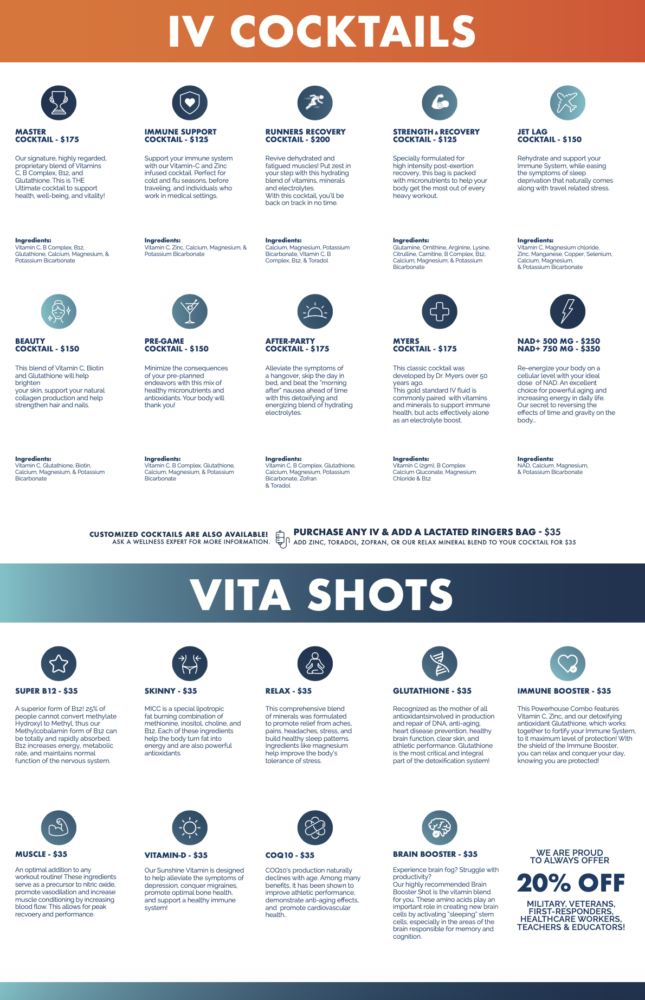Introduction
Lifespan and healthspan are two terms you may hear in reference to aging, but are they any different? The difference between them is simple: lifespan is how long you live and healthspan refers to how well you live during that period. You can have a long life (lifespan), yet still be chronically sick and unhappy. It is ideal we live a long healthy life, where few complications due to illness are experienced. In order to improve our healthspan or increase our lifespan, it is important we understand the variables which impact our long-term health.
Lifespan is the length of your life.
Lifespan is the length of your life. Although the average lifespan in the United States is nearly 80 years old, many elderly people (95% percent) suffer from at least one chronic health condition. Chronic health conditions may impact the quality of life by inhibiting mood, sleep, stress, mobility, happiness, and comfortability.
Healthspan is about how well you live during those years.
Healthspan is about more than just living longer. It’s about how long you can live and how well you can live during those years.Many people think of life extension as the holy grail of aging research, but healthspan is a much better goal to aim for since it encompasses the idea that quality of life matters as well. The concept behind healthspan is that while we want to make sure people are living as long as possible, we also want them to be healthy in mind and body throughout their lives so that they can enjoy their limited time on Earth.
Healthspan can be measured by looking at biomarkers such as blood pressure, cholesterol levels, inflammation markers, and cognitive tests. We can also assess our own quality of life by reflecting on our mood, energy, and levels of happiness.
“Diet is one of the most important factors in healthspan,” says Dr. John Toussaint, an expert in neurodegenerative disease and author of How to Live Past 100. “It’s easy for us to think about lifespan, but what about healthspan? What does that mean for you or me?”
Diet plays a big role here: It affects your mental and physical health in many ways. Diet can affect everything from heart disease, cancer risk and diabetes risk; to mood disorders like depression or anxiety; even how well your brain functions as you age.
So, you can increase your healthspan by eating a balanced diet that includes healthy fats, carbs and protein; eating plenty of fruits and vegetables but also by staying active; staying socially engaged with friends or family members; getting enough sleep; avoiding stressors like financial problems or relationship issues; managing chronic conditions like diabetes or heart disease; caring for yourself when sick with colds or flu symptoms
Exercise lowers your risk for heart disease, diabetes, and cancer.
Exercise is one of the best ways to prevent heart disease, diabetes, and arthritis. It can also help you maintain a healthy weight and manage stress, anxiety, depression, and insomnia. By increasing blood flow to the brain and releasing endorphins (natural feel-good chemicals) in your brain that make you feel happier, exercise might be one of the best things for mental health as we age.
Conclusion
While it’s true that healthy habits may help you live longer and stay healthier, there is no guarantee that you’ll live to be 100 years old. The concept of healthspan has been widely adopted as a way to shift the focus away from just living longer towards living better, presently. By focusing on factors like diet and exercise, we can make sure our bodies are healthy enough to enjoy life throughout every stage.







